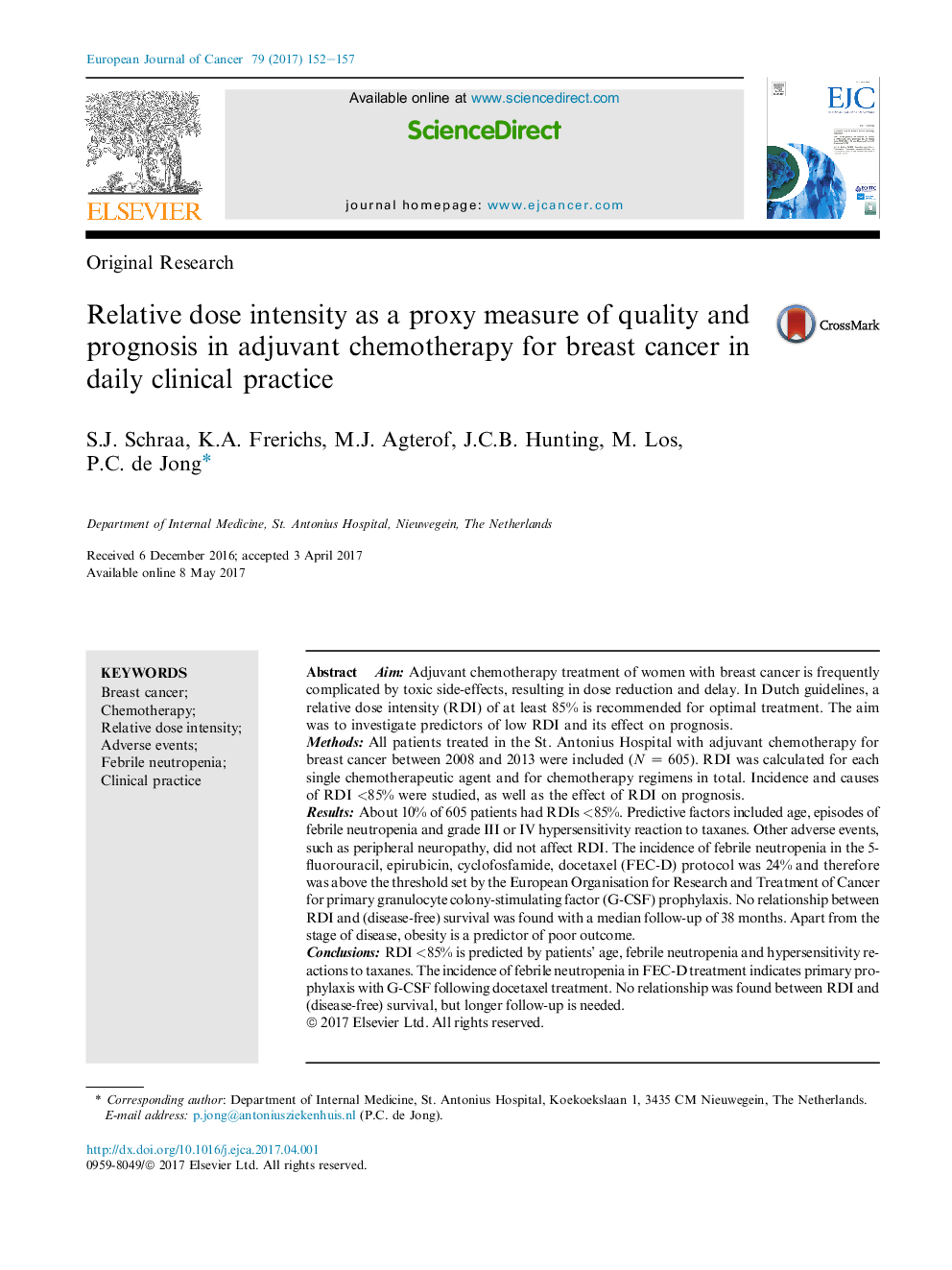| کد مقاله | کد نشریه | سال انتشار | مقاله انگلیسی | نسخه تمام متن |
|---|---|---|---|---|
| 5526640 | 1547053 | 2017 | 6 صفحه PDF | دانلود رایگان |

- We provide an overview of chemotherapy treatment in clinical daily practice.
- Predictors of low relative dose intensity (RDI) are age, febrile neutropenia and hypersensitivity to taxanes.
- Primary granulocyte colony-stimulating factor prophylaxis is indicated for patients treated with FEC-D chemotherapy.
- No effect of RDI below 85% on (disease-free) survival was found.
- Obesity is a significant predictor of recurrence of breast cancer.
AimAdjuvant chemotherapy treatment of women with breast cancer is frequently complicated by toxic side-effects, resulting in dose reduction and delay. In Dutch guidelines, a relative dose intensity (RDI) of at least 85% is recommended for optimal treatment. The aim was to investigate predictors of low RDI and its effect on prognosis.MethodsAll patients treated in the St. Antonius Hospital with adjuvant chemotherapy for breast cancer between 2008 and 2013 were included (NÂ =Â 605). RDI was calculated for each single chemotherapeutic agent and for chemotherapy regimens in total. Incidence and causes of RDI <85% were studied, as well as the effect of RDI on prognosis.ResultsAbout 10% of 605 patients had RDIs <85%. Predictive factors included age, episodes of febrile neutropenia and grade III or IV hypersensitivity reaction to taxanes. Other adverse events, such as peripheral neuropathy, did not affect RDI. The incidence of febrile neutropenia in the 5-fluorouracil, epirubicin, cyclofosfamide, docetaxel (FEC-D) protocol was 24% and therefore was above the threshold set by the European Organisation for Research and Treatment of Cancer for primary granulocyte colony-stimulating factor (G-CSF) prophylaxis. No relationship between RDI and (disease-free) survival was found with a median follow-up of 38 months. Apart from the stage of disease, obesity is a predictor of poor outcome.ConclusionsRDI <85% is predicted by patients' age, febrile neutropenia and hypersensitivity reactions to taxanes. The incidence of febrile neutropenia in FEC-D treatment indicates primary prophylaxis with G-CSF following docetaxel treatment. No relationship was found between RDI and (disease-free) survival, but longer follow-up is needed.
Journal: European Journal of Cancer - Volume 79, July 2017, Pages 152-157